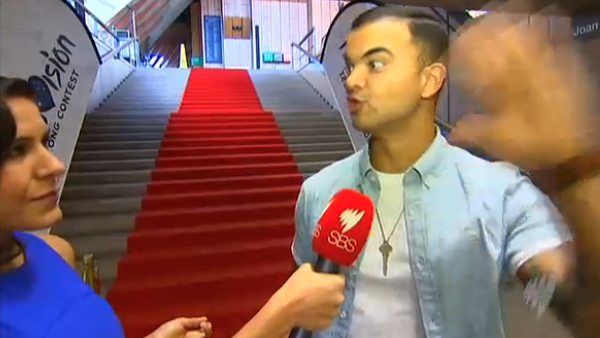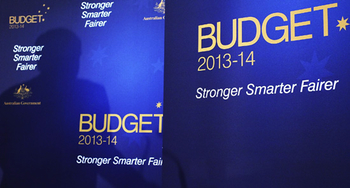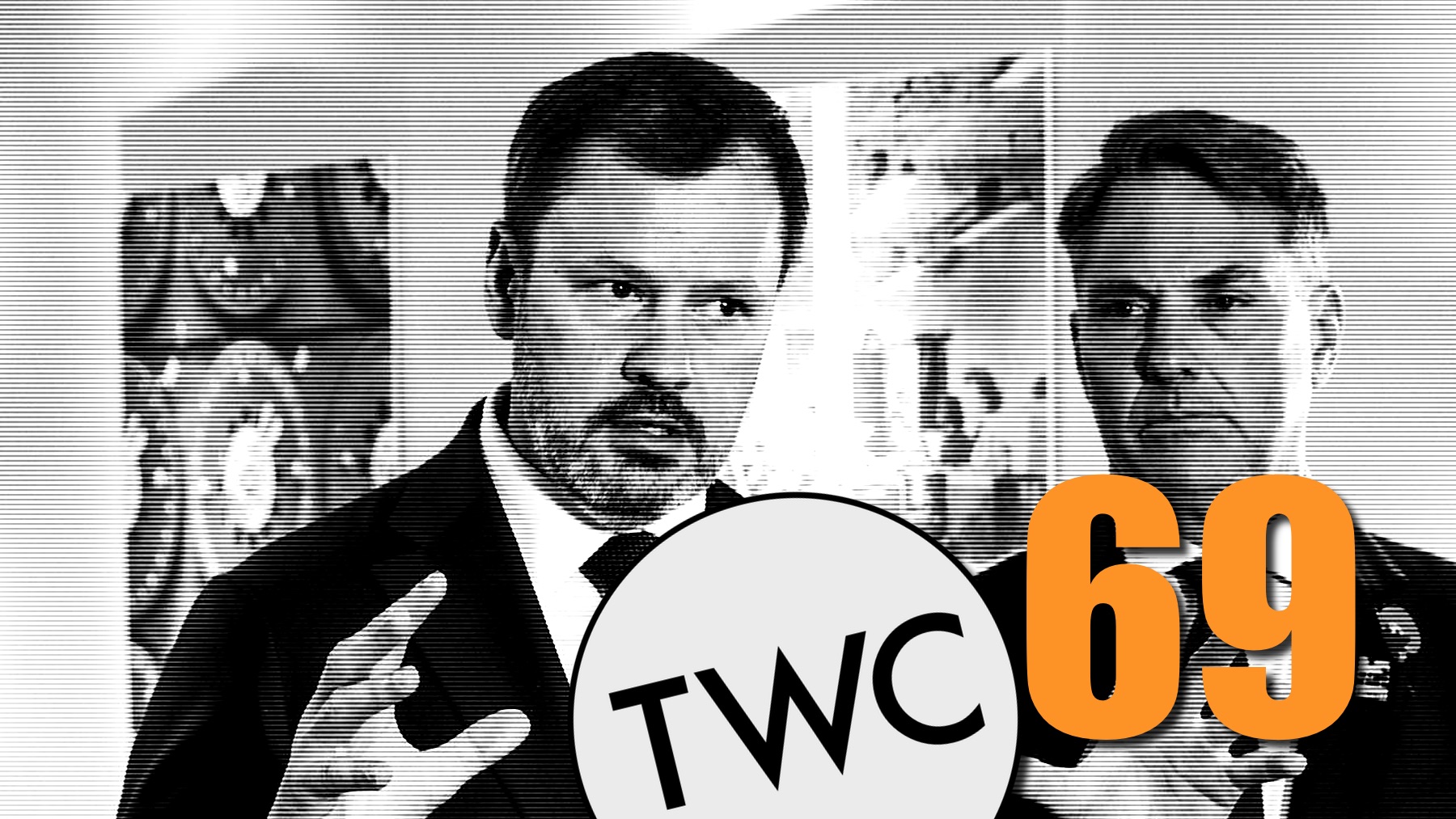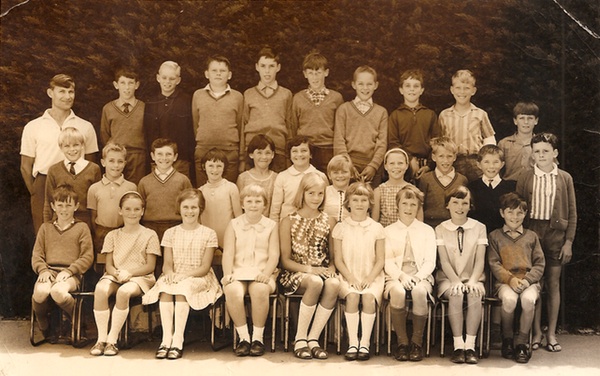This series of blog posts is transforming into an email newsletter. In the final instalment in this format, we have the government’s update on supporting responsible AI, and a bunch of other news stories.
Continue reading “Digital developments from Canberra 69 — nice! — is now The Weekly Cybers”Talking the death of handwriting on ABC 891 Adelaide
 “How relevant is handwriting in 2015, when people are increasingly communicating via text messages, via email, via tweets, Facebook updates, those sort things?”, asked ABC 891 Adelaide presenter Michael Smyth on Monday afternoon.
“How relevant is handwriting in 2015, when people are increasingly communicating via text messages, via email, via tweets, Facebook updates, those sort things?”, asked ABC 891 Adelaide presenter Michael Smyth on Monday afternoon.
There are schools in Finland and the US reportedly phasing out the teaching of handwriting.
Here’s what I think is an interesting 12-minute discussion that includes a vox pop of people in Adelaide, talkback calls, and Pam Kent, president of the South Australian Primary Principals Association, as well as myself.
Podcast: Play in new window | Download (Duration: 12:33 — 7.4MB)
The audio is ©2015 Australian Broadcasting Corporation.
Bonus link: By a happy coincidence, this week’s episode of ABC Radio’s Future Tense asks Does handwriting have a future?
The 9pm Shut Up It’s Called Logic

Australia has chosen its face for Eurovision 2015, and it needs a shave. Christopher Pyne explains science. And Malcolm Turnbull explains reality.
In this podcast, there’s talk of logic, leadership, public relations, science and Florida. Obviously.
Continue reading “The 9pm Shut Up It’s Called Logic”Australia’s Budget 2013 keeps us stuck in the past
[As it turns out, my planned Budget commentary for Crikey didn’t happen. I got up early in San Jose, read the budget papers and made notes, but then my as-yet-unwritten article got spiked. This is a quick and somewhat belated post based on my notes, not as polished as it might have been if written for Crikey.]
 The problem with Australia’s Labor government is that after having had One Big Idea for a bold new future in the National Broadband Network (NBN), they’ve come up with almost nothing anywhere else. This year’s federal budget was a dull plod. Again.
The problem with Australia’s Labor government is that after having had One Big Idea for a bold new future in the National Broadband Network (NBN), they’ve come up with almost nothing anywhere else. This year’s federal budget was a dull plod. Again.
There was even one move which struck me as remarkably dumb: capping the available tax deductions for self-education expenses at just $2000 a year. Apparently that saves $500 million, and that’ll go to the schools — and schools are good for the kiddies, of course — but that’s half a billion dollars less for people to be able to keep up with a rapidly-changing work environment.
This strikes me as particularly stupid when so many of the people servicing the computers, networks and other technology that powers small business are often freelancers, as are so many web developers and designers.
Two grand a year doesn’t go far when it costs nearly half that just to attend the annual user conference for just one of your core software toolsets — more if you have to add airfares and accommodation — and the rest would soon be burnt up on a handful of reference books.
Back when I used to work in various management and staff development roles, I was told that any organisation that wants to advance its knowledge base should be spending at least 5% of its time on staff development. In a technology field, in my opinion, that should be at least 10%. That’s four hours a week, or a week or so every three months.
That still doesn’t sound very much, but it’d cost at least four times that capped amount. And that’s still not compensating freelancers for the loss of billable hours.
“Business and training groups have already said capping the expenses will stop employers from being able to offer staff new training initiatives. There were reports [the week before the budget that] the government would end up reversing the move, but the budget papers now state the change is locked-in,” wrote Patrick Stafford at SmartCompany.
“The announcement is sure to raise the ire of small business groups. Many business owners also use these deductions for short courses and industry-based training sessions.”
There’s two particularly galling lines in the budget papers themselves. First, the tax deductions are now only available…
…where these expenses are incurred in the production of the taxpayer’s current assessable income.
So you’re discouraged from educating yourself for the jobs that will become available even in the very near future. Why?
The potential for uncapped claims for a wide range of expenses provides an opportunity for some people to enjoy significant private benefits at taxpayers’ expense.
Orly? That’s a bit rich, given that vast sums already given to private schools. Or the “baby bonus” that people on quite significant household incomes still get for extruding another brat. That simply reeks of hypocrisy.
Continue reading “Australia’s Budget 2013 keeps us stuck in the past”
50 to 50 #6: Myponga Primary School
[This post is part of the series 50 to 50, fifty posts in the lead-up to my 50th birthday next weekend. Originally intended to be one per day, with the final one on the birthday itself, it’s been disrupted by my work schedule. There will still be fifty posts, eventually, just not one per day.]
One day in early 1966, when I was still five years old, I caught the school bus from the front gate of our dairy farm near Mount Compass and enrolled myself at Myponga Primary School.
Yes, I enrolled myself. My parents were too busy running the farm that day. I can just remember being taken to the principal’s office to answer the questions he needed to complete the enrolment form. Name, date of birth, address, telephone number, parents’ names and so on. I daresay my parents had phoned in advance with most of that stuff, but at the time I felt so very grown up and clever.
I knew my alphabet and could count and do basic arithmetic before I went to school. These days there are kindergartens and pre-schools in the cities and towns, and plenty of kids’ TV programs wherever you live. But who taught me back then? I’m guessing my grandmother — my mother’s mother — who lived with us on the farm. Alas, I have almost no memory of her.
School bored me. All these kids seemed so stupid! They had to be taught their letters and numbers and I already knew all that. Apparently I was disruptive in class. Who knew?
The photo [embiggen] is actually from 1969, when I was in Grade 5 and nine years old. Which kid is me? I’ll tell you at the bottom of this post.
The guy on the top row, sixth from the left with a cheesy grin, is Mark Lorenzetti. Our families were friends. Mark was the same age as me, his youngest brother the same age as mine, and he had a brother in the middle. Like us, they had a dairy farm, though theirs had plenty of irrigated land and was clearly far more productive through those droughts of the 1960s. I reckon our dogs were smarter than theirs though.
Links for 22 October 2009 through 27 October 2009
Stilgherrian’s links for 22 October 2009 through 27 October 2009, published after far too long a break. I really, really do need to work out a better way of doing this…
- Nature Child | San Juan Islander: “According to family studies professor, Sandra Hofferth of the University of Maryland, there was a 50% decline between 1997 to 2003 in the proportion of children 9 to 12 who spent time in outdoor activities (hiking, walking, fishing, beach play and gardening).”
- FreeRangeKids: “At Free Range, we believe in safe kids. We believe in helmets, car seats and safety belts. We do NOT believe that every time school age children go outside, they need a security detail.”
- How far did you roam as a child? | Watershed: Educator John Larkin continues the thoughts about wrapping our kids in cotton wool.
- How children lost the right to roam in four generations | Mail Online: In 1919, an 8yo was allowed to walk six miles to go fishing. Today, an 8yo isn’t allowed past the end of the street without parental escort. This article from 2007 triggered many thoughts, and I’ve glad I found it again.
- Forget the young pretenders, Humans 1.0 can lead the way | The Observer: John Naughton riffs off the idea that teenagers don’t know everything and some parts of cyberspace (ugh!) are teenager-free. Although the article then says that “only” 11% of Twitter’s users are under 17 years old. And what proportion of the literate population is under 17yo? 11%? More? Less?
- Podcasting Equipment Guide (2009) | Hivelogic: A nice guide to the tools needed to podcast on a budget. Yes, there’s a reason I’m looking at this. Stay tuned, as they say.
- Senate Select Committee on the National Broadband Network | Parliament of Australia: Full transcripts of the Senate Select Committee on the National Broadband Network public hearings, which I’m tagging for my own reference later.
- What Information is “Personally Identifiable”? | Electronic Frontier Foundation: Gender, ZIP code and birth date are enough to uniquely identify about 87% of the US population. This has massive implications for publishing data sets, and for privacy policies that claim not to collect “personally identifiable” information.
- Nine News twittered by seagull | TV Tonight: It’s nothing to do with Twitter, but there is a seagull. A very big seagull.
- Apology for singing shop worker | BBC News: Shop assistant Sandra Burt, 56, from Clackmannanshire, was threatened with a fine for singing without a license by the Performing Right Society. However they’ve now apologised and sent flowers.
- Online Ads Not Working for You? Blame the Creative | Advertising Age: A study by Dynamic Logic says that obsession about optimisation and placement is less important.
- We can’t turn back the tide of internet piracy, says TV boss | Herald Scotland: “Internet piracy is merely demand where appropriate supply does not exist,” says the commissioning editor for education at the UK’s Channel 4.
- Court tweets sustained but paper still lurks | ZDNet Australia: Liam Tung, who tweeted from the AFACT v iiNet trial in the Federal Court of Australia in Sydney, reflects on the gaps in courtroom IT.
- Beats and Tweets: Journalistic Guidelines for the Facebook Era | NPR: Yet another exploration of ethics an journalism. One point in here I really do not like, though: “You must not advocate for political or other polarizing issues online. This extends to joining online groups or using social media in any form (including your Facebook page or a personal blog) to express personal views on a political or other controversial issue that you could not write for the air or post on NPR.org.” Sorry? Work for NPR and you lose your right to participate in democracy?
- Poles, Politeness and Politics in the age of Twitter | The New Adventures of Stephen Fry: Another fine if perhaps rambling essay from Mr Fry about the meaning of “influence” and accidentally gaining same. Worth a leisurely read.
- Why journalism's all a-Twitter | The Walkley Foundation: The editorial chief of Sydney’s forthcoming Media140 conference goes beyond the obvious “Is Twitter journalism?” and mechanical how-to issues and explores the ethical issues of journalists using Twitter.
- Twitter in the court: Federal judge gets it | CNET News: Another article about using Twitter in courtrooms, from the US an from March 2009.
- Call For Opinions | Blackbeard Blog: Tom Ewing’s collection of opinions on market research and social media, “quite unsupported by anything other than grumpiness and prejudice”. The first is that “insights” aren’t Zen koans. “If you can express something that briefly, it’s probably banal.”
- The internet doesn’t exist | Business Spectator: Ah, Alan Kohler! I do so love your commentaries! Here’s more of his sensible thoughts on the matter of paying for “content” on the Internet.
- How Safe is the HPV vaccine? | Information Is Beautiful: A brilliantly simple infographic showing the incredibly low risk of associated with the Human Papillomavirus compared with various everyday activities.
- Ultimate Goat Fansite: Do I need to explain? I thought not.


